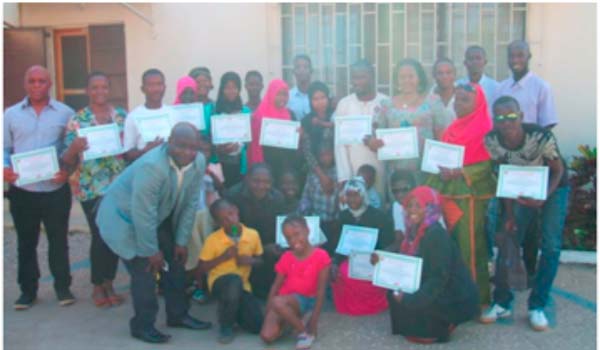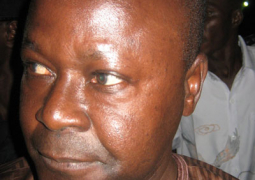
Held at the Worldwide Evangelization for Christ offices in Pipeline, the seminar was meant to teach participants on diet control and disease prevention measures.
It was designed to sensitise the participants with the required knowledge to deal with issues of controlling diet, and how to prevent some of the diseases that are caused by the food people consume and the materials they use to cook those foods.
In her remarks at the seminar, the organisation’s secretary, Mariama Camara, told the participants that the American-based organisation is a non-profit body dedicated to improving the health and well-being of under-served people around the world.
“The IHO believes that the serious health problems experienced by disenfranchised people in rural communities derive from and are often perpetuated by their poverty and environmental conditions,” she said.
As a result, she added, isolated attempts to treat diseases from a health perspective alone or to improve only certain aspects of their health would not be successful over time, unless there are parallel improvements in the economic and environmental conditions, which perpetuate the cycle of poor health, impoverishment, and premature death, by preventable diseases.
She challenged the trainees to make good use of the knowledge gained from the training, and to disseminate the information to their neighbours and friends.
Apart from organising seminars, they also reach out to communities to sensitise them on preventive health measures, and also give them treatment using Nitropatic system of healing free of charge.
“We use plant-based products into medicine by manufacturing them into capsules, just like the way the Chinese doctors are doing,” she said, adding that they also help people through public health programmes by improving their environmental and economic health as well.
“This philosophy forms the basis of IHO’s integrated and holistic health programmes,” she said.
IHO Sanitarium director, who also doubles as the Medical Missionary Director for West Africa, Christian Gadoxor, said the organisation is out to promote the well-being of mankind through preventive healthcare.
They also educate the public on many health issues that are yet to be alarming, so they can prevent themselves getting sick from avoidable diseases.
“We choose to sensitise people on diet, purposely because it is the only way we can reduce some of the diseases that are caused by the food we consume every day.”
Government and the ministry of Health should venture into sensitizing people on the food they consume every day, which in turn serves as a great risk for their health and well-being, he said.
The organisation also provides clinical services, and its major emphasis is upon the prevention of disease by increasing access to existing local healthcare.
“It does this by linking rural communities with healthcare services that at the present time do not reach those communities.”
This method of disease prevention is successful, as well as cost-effective, because it is managed by world-class health professionals, he said.




